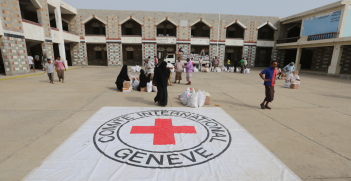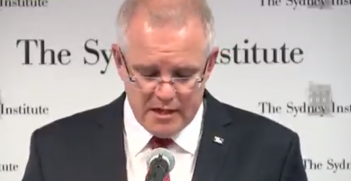So Now What? The War in Gaza and the Future of the Conflict in Israel-Palestine
The cannons have gone silent, and the fireworks display over Gaza’s sky has gone dark. Paradoxically, as long as the ceasefire holds, the withdrawal of direly needed global attention from the region will continue, like oftentimes before – and onwards to the next crisis.
In the meantime, on the ground, Hamas’ supporters are celebrating a victory, as are Israeli officials in Jerusalem, even if less convincingly. The full “success” of its campaign cannot be disclosed, says Israel.
So, What Now?
The most recent round of violence in Israel-Palestine resulted from a convergence of trigger events, all of which are inherent to the conflict, all of which can explode again at any time.
In this century-long feud over land, there is no real respite from the violence. Adversarial historical and territorial claims and diametrically opposed narratives continue to foment competing accounts of victimisation, fear, mutual mistrust, and hatred.
On the Israeli side, widespread perceptions of existential threats and the resulting impetus for military supremacy, founded on lessons and traumas of the Holocaust and ceaseless terror attacks, are colliding with Palestinian experiences of dispossession, humiliation, and ongoing violations of rights. A growing influence of religious fundamentalism on both sides has all but stymied hopes for an end to the conflict in the near or even medium span.
To be sure, under the current conditions, a sustainable resolution to the conflict is far from anyone’s reach. The maximum concessions that either of the sides is willing to offer falls considerably short of the minimum gains that the other side is ready to take.
The Two-State Solution
Hamas’ ability to continue firing rockets despite Israel’s overwhelming military dominance stunned Israelis, many of whom had been transformed suddenly from bystanders to targets for the first time since 2014. How would this trauma influence an Israeli public already fearful of an independent Palestinian state next door to its largest cities? How many would be willing now to risk having such a neighbour, not seventy kilometres away in Gaza, but five or ten?
While an important question, it is unclear how much sway Israel would carry over the decision. Had the Palestinian legislative elections, which were scheduled for 22 May this year, not been cancelled, a Hamas win could have led to just that — Hamas supremacy in the West Bank. Such a victory would have been bolstered by the organisation’s rising popularity, following its stand against Israel over the events in Jerusalem, and by a vote of no-confidence against a Fatah-controlled Palestinian Authority (PA). Many have grown weary of rampant corruption within the PA and disillusioned with its failure to deliver on the promise of an independent Palestinian State. A Hamas triumph would mean, therefore, at least as much a Fatah failure.
Notably, an impending leadership struggle within Fatah over the succession of 85-year-old PA President Mahmoud Abbas is expected to take place not long from now, with unclear implications for the currently postponed elections.
A One State Solution?
Even before the recent violence, the viability of a bi-national state for all Israelis and Palestinians living between the Jordan River and the Mediterranean Sea was in doubt. Opinion polls have long indicated a Jewish-Israeli rejection of citizenship rights for West Bank Palestinians. The unprecedented inter-communal hostility in Israel between the Jewish and Israeli-Palestinian communities had erupted shortly before, but persisted throughout the war in Gaza, and should be judged also against the backdrop of systemic discrimination and neglect of Israel’s Palestinian citizens.
A word on Humiliation
In 2003, columnist Thomas Friedman published an opinion piece in The New York Times entitled “The Humiliation Factor.” He wrote, “If I’ve learned one thing covering world affairs, it’s this: The single most underappreciated force in international relations is humiliation.” Friedman’s initial take had focused on the dignity and honour in success, but by 2020 has developed to cover a broader range of the influences of humiliation.
It is difficult to overstate the destructive role played by humiliation in the Israel-Palestine conflict, mainly for Palestinians. These effects have been far from appreciated by many Israeli Jews and continue to take their toll on the strained relations between the two societies in all areas of governance, including social, economic, and security-related interactions between Jews and Palestinians inside Israel and in the occupied territories. If I were to pick the most consequential, and at the same time most feasible to address, tension point between the two peoples, I wouldn’t hesitate to name lack of respect and dignity. As noted also by Nelson Mandela: “there is nobody more dangerous than one who has been humiliated.”
“American” leadership?
The Biden administration, which had held the hopes of many Palestinians, seems to have failed to pass its first significant test in fulfilling its promise of a human rights-centred foreign policy.
At the same time, the Democratic party has been seeing significant shifts in members’ attitudes toward Israel and the conflict. The near identification formed between Prime Minister Binyamin Netanyahu and the Republican Party and the ascendance of progressive Democrats less deferential to Israel are being reinforced by the images of destruction from Gaza, including the collapse of the al-Jalaa Tower, which housed, among others, the Associated Press headquarters in the city. All these far from help Israel’s image in the US.
However, these transformations are likely set to hit the same brick wall faced by American presidents of the past. That is, the intractability of the conflict and calculations of whether it is in the US interest to initiate a peace process that is almost certain to fail. With other pressing concerns on Biden’s desk, such as the relationship with China, the Iran deal, and a slew of domestic challenges, his administration would not go out of its way to launch a meaningful effort, beyond perhaps, for appearances.
What the Palestinians and their supporters would like to have seen is the conditioning of billions of dollars of military aid and weapons sales to Israel on the latter’s commitment to the ceasefire in Gaza and a halt to the construction of new Jewish settlements in the West Bank and East Jerusalem. How likely are such demands to fall on open ears in Washington?
Outlook for the Future
Presently, the prospects for meaningful progress toward a comprehensive resolution of the conflict are low. The most that can be done in the short term is to try to minimise the risks for a new round of violence, (re)commence the rebuilding of Gaza, and seek to advance modest improvements in communication and trust between Jews and Palestinians inside Israel, in East Jerusalem, and in the West Bank. Given the fragility of relationships, none of the above would be easy to achieve. Triggers relating to the Muslim Holy Sites in Jerusalem and to evictions of Palestinian families on the one hand, and to renewed rockets or other terrorist attacks against Israelis on the other, will continue to be vulnerable to exploitation by extremists on either side.
Given the significant resilience of victimisation (“everyone’s against us”) narratives to external pressures, outside actors — including the US, the Europeans, and Arab States — would have to apply strong measures to extract any meaningful concessions from the parties to the conflict.
Along with high-level engagements, international actors should act to support grassroots efforts to deescalate tensions, improve conditions of life for Palestinians in the West Bank and East Jerusalem, and reduce frictions with Jewish settlers. The long-time blockade of Gaza must be lifted, keeping in place limited restrictions only. Fifteen years of maintaining an open-air prison in the Strip seems to have done little to serve Israel’s security concerns.
Finally, along with investments in inter-communal peacebuilding projects, Israel’s next government should work to reduce inequalities for the one-fifth of its citizens who are Israeli Palestinians, including doing much more to address inequalities in legislation and funds allocation, housing building permits, youth unemployment, and in reducing intra-societal violence within Israeli-Palestinian communities.
Dr Eyal Mayroz is a Senior Lecturer on human rights and international peace and security in the Department of Peace and Conflict Studies at the University of Sydney. Formerly a counterterrorism specialist (Captain, retired), he is the author of Reluctant Interveners: America’s Failed Responses to Genocide from Bosnia to Darfur, which was named one of Choice magazine’s outstanding academic titles of 2020.
This article is published under a Creative Commons License and may be republished with attribution.





